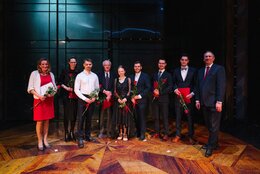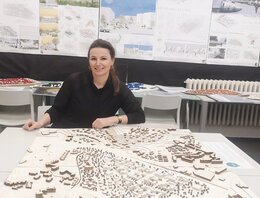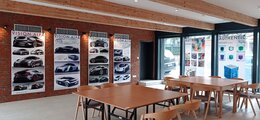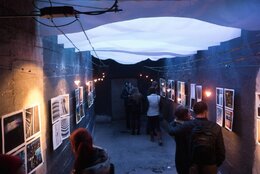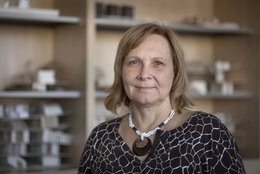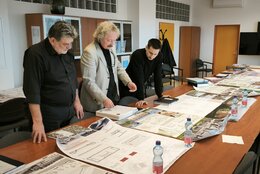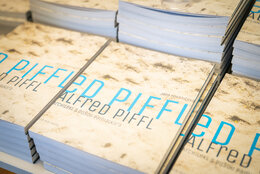InDeSIS Design Summer School 2025
Innovation Design for Social Inclusion and Sustainability
UdA’s ERASMUS+ BIPs for the Academic Year 2024/2025 – Department of Architecture
Endorsed by:
- The ENRICH Project (Enhancing the Digital Inclusivity of Cultural and Natural Heritage)
- INGENIUM European University (co-funded by Erasmus+)
- Partners
BIP 1 (Coordinator Emilio Rossi): Product Design for Social Inclusion and Sustainability (InDeSIS-PD)
- “Gabriele D’Annunzio” University of Chieti-Pescara, Italy (UdA, Lead, Academic Partner)
- Slovak University of Technology in Bratislava, Slovakia (STU, Academic Partner)
- University of Minho, Portugal (UMINHO, Academic Partner)
- University of Applied Sciences Berlin, Germany (HTW, Academic Partner)
- University of Lincoln, United Kingdom (UoL, Academic Partner)
- XXXXX, Italy (XXXXX, Business Partner) – TBC
BIP 2 (Coordinator Rossana Gaddi): Communication and Digital Design for Social Inclusion and Sustainability (InDeSIS-CDD)
- “Gabriele D’Annunzio” University of Chieti-Pescara, Italy (UdA, Lead, Academic Partner)
- University of Oviedo, Spain (UNIOVI, Academic Partner)
- University of Skövde, Sweden (HiS, Academic Partner)
- XXXXX, Italy (XXXXX, Business Partner) – TBC
- Introduction to the InDeSIS Summer School
Under the Erasmus+ BIP initiatives, UdA proposes to implement and host the InDeSIS Design Summer School 2025 – Innovation Design for Social Inclusion and Sustainability – for the academic year 2024/2025. The InDeSIS Design Summer School involves six European Higher Education Institutions (HEIs), as well as local companies and organizations, and offers students the opportunity to gain high-quality training and skills in emerging design and research topics that are considered relevant today, such as Design for Inclusion (DfSI) and Design for Sustainability (DfS). Each HEI will participate with 8 students (64 total), and the teaching activities will be delivered between February/March and June/July 2025. English will be the official language used for both online and studio activities. Moreover, the InDeSIS Design Summer School will host the final event of the ENRICH Project – Enhancing the Digital Inclusivity of Cultural and Natural Heritage – funded by INGENIUM European University (co-funded by Erasmus+). Accordingly, students will have the opportunity to benefit from novel cultural research results produced by the ENRICH consortium in the field of Design.
The general cultural framework proposed for the InDeSIS Design Summer School is consistent with the recent trends of Design studies focused on social and environmental issues and aims to equip learners with new professional and cultural skills. At the InDeSIS Design Summer School, students will be tasked with designing an intelligent solution that demonstrates high quality in terms of human-centered design, digital communication, and manufacturing. Both product- and communication-oriented teaching contents will be offered to students through online sessions held by international academics that will provide a solid baseline of information useful for studio activities. Preliminary research stages will serve as the foundation for an empathetic approach to creating a wide range of solutions that are both sustainable and socially inclusive. Innovative products for health, creative communication solutions for emerging and developing countries, enabling digital artefacts to combat inequalities, etc. are just some of the potential outcomes that students can develop. Furthermore, research contents produced by the ENRICH project will serve as a valuable cultural reference to be utilized during studio sessions.
In terms of teaching and learning practice (T&L), a two-stage teaching pathway (online teaching in Stage 1 and studio teaching in Stage 2) will enable students to gain information and awareness of themed contents and collaborate in a democratic way. Students will be asked to work in small teams with at least one representative from each HEI involved, resulting in a total of eight groups. To document the overall suitability of proposals, students will also be asked to identify the most suitable market niche for their designs. Regarding attitude, the InDeSIS Design Summer School promotes the “students as knowledge producers” philosophy, which means that learners are responsible for autonomously leading, proposing, coordinating, negotiating, and developing a wide range of studio activities based on peer-to-peer interactions. Empathy and leadership will form the basis for successful projects.
In terms of pedagogical approach, the InDeSIS Design Summer School is based on authentic learning and will provide students with opportunities to improve their learning curves and technical skills, as well as reinforce engagement in working as proactive designers. Improved pedagogical impacts are expected from the combination of blended teaching and studio activities. By the end of the InDeSIS Design Summer School, students will be able to produce evidence of both digital and critical skills in the fields of DfSI and DfS. Communication will be evaluated through a public presentation of projects, while a better understanding of socio-environmental issues, inclusivity, independent thinking, creative problem solving, and collaboration with peers will serve as evidence of progress in activities implemented via studio sessions at UdA in Italy in June/July 2025.
- InDeSIS: Innovation Design for Social Inclusion and Sustainability
Contemporary system-oriented design practices are evolving in response to global trends and require designers to adopt new design-oriented attitudes to effectively engage with global markets, which are drawing attention to the creation of enabling solutions that are both socially inclusive and sustainable. Accordingly, Product Design and Communication Design can work synergistically to produce a new set of intelligent solutions to address innovative scenarios. In this context, HEIs are encouraged to update and improve their curricular activities to provide learners in Design programs with opportunities to gain novel cultural insights, methodological frameworks, design skills, and project management competencies to creatively tackle these emerging challenges.
The idea behind the InDeSIS Design Summer School is to provide students initial narrowed contents on DfSI and DfS within the broader contexts of Product Design and Communication and Digital Design, all within an international dimension. System Design will serve as a solid knowledge framework in which both products and communicative solutions can engage in synergistic dialogue. Accordingly, students attending the T&L activities of the InDeSIS Summer School will have the opportunity to approach and get confidence with the useful know-how needed to develop market-oriented skills that can ultimately be systemically dynamic. Within the System Design knowledge framework, students will be guided through different design practices via multidisciplinary subjects that provide initial references useful for working with both tangible artifacts and digital solutions connected to enabling services. Advanced information about digital modeling, sketching, technical representation, 3D printing, communication design, digital game design, and branding will be provided to enable students to manage the entire lifecycle design process necessary to realize creative solutions that are both socially inclusive and sustainable.
In line with the aims and structure of the InDeSIS Design Summer School, as promoted by the Erasmus+ framework for BIPs, students from participating HEIs will have access to a 70-hour teaching offer that includes cultural and technical activities delivered through online and studio teaching.
Online teaching delivered in Stage 1 will establish a knowledge baseline useful for in-person studio activities at UdA, Italy (Stage 2). Individual and group tutorials are also offered as online meetings for students in need of assistance. Stage 1 provides cultural elements on:
- System Design Culture:
- Interdisciplinary frameworks and contents on DfSI and DfS.
- Visual Philosophy and Design Authenticity.
- Intellectual Creativity and Lifecycle Design.
- System Design – Product Design:
- HCD and UX methodologies.
- New Product Development (NPD).
- 3D Printing and Advanced Manufacturing.
- System Design – Communication:
- Digital Communication.
- Strategic Promotion and Branding.
- Digital Game Design.
Stage 2 comprises a 7-day studio activity at UdA where students, working in international teams, will be asked to develop an original solution that is consistent with the main aim of the InDeSIS Design Summer School: designing a system-led phygital solution, or a set of physical and digital solutions, that is both socially inclusive and sustainable. Interpretations and creative developments are also promoted to enrich the student T&L experience as well as the “students as knowledge producers” philosophy. Moreover, the cultural framework developed within the ENRICH project as well as its research and methodological results will serve as a potential testing ground for studio activities on real case studies in the Abruzzi region and/or in a relevant area of the Pescara municipality that shows high value in terms of cultural and natural heritage.
At the end of the InDeSIS Design Summer School, students will be able to manage and apply a new initial set of methods, information, and technical skills useful to work with the two pre-identified design fields – DfSI and DfS – and to creatively use research, design, and manufacturing skills.
- Academic Recognition of Activities
UdA will grant 6 credits (ECTS) and a certificate of attendance to all students who complete all teaching activities set for Stage 1 and Stage 2.
- Expected Results
- Eight projects made by students to be presented at the end of the studio session at UdA in June/July 2025. A panel of experts will select the best project and assign the “Best Project Award”.
- An itinerant digital and/or physical exhibition to be simultaneously held at UDA, STU, UMINHO, HTW, UNIOVI, and HiS, to document the main outcomes of the InDeSIS Design Summer School.
- A promotional multilanguage video documenting the activities of the InDeSIS Summer School at UdA (Stage 2), with participant interviews.
- An open access publication containing the cultural, scientific, and design results of the InDeSIS Summer School. Other outputs can be produced after the completion of the project.




